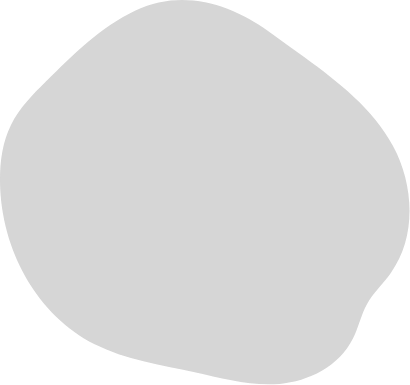Namaskaram!
This episode is meant for people who are interested in adopting fish farming methods that are in tune with Nature. Here is a person who has proven that fish farming can be a profitable business. He has enormous practical wisdom, and is an expert in what he does. I was attracted towards two special features in him: one, his knowledge of fish farming is immense; and two, he keeps himself updated on the events that take place all around the world. He has an M. A. degree in Economics, and takes classes on this subject but is also interested in science and talks eloquently about it. Dressed in lungi and a T-shirt, he goes about his task of raising fish on his own, and derives a lot of enjoyment out of it. He claims that he is able to do things to a degree of perfection that he does not get from others. In his view, this is not a back-breaking work. “I work for some time and then take rest. I spend my leisure hours watching YouTube videos and learning new things,” he says. That is indeed true because he keeps himself constantly updated. Let us learn something from him regarding fish farming and his experiences in the field.
Was this area of work your own choice? Or, is it a traditional one?
Yes, I selected fish farming as my occupation. When I entered the field, it was not practised on a large scale in this region. This was 27-28 years back. In those days, no one did it in order to make a living. People would catch fish and earn some money. That was all. No one imagined they could grow fish and earn a living.
How did you come to this field?
It was purely by accident. I come from a family that makes a living out of catching fish. Yet, I did not have any idea about fish farming. Once, during my pre-degree days, I happened to go to a friend’s house in connection with a wedding. There, I saw my friend’s father engaged in fish farming. I was greatly inspired by what I saw. Especially when it was feeding time for the fish. Mushi fish (catfish) was being grown on a large scale everywhere in Kerala during those days. In fact, mushi fish was synonymous with fish farming then. During feeding time, they assembled in such huge numbers that it looked like an erupting pyramid. I found it very attractive. Without any delay, I decided to use the pond in a ten-cent plot right in front of my house to start fish farming. The pond was dried, cleaned and made ready for mushi farming. At that time, this variety fetched anywhere between Rs 150 and Rs 200 a kilo in the market. Later, the price plummeted because there was a propaganda about the fish swimming into tanks, even septic tanks . . .
And in canals . . .
Later, I chose to raise Assam vala (Pangasius fish). I took a 4.75 acre-plot on lease and started farming. I continued this for nearly 12-13 years, and eventually bought the plot out of the profit I had made. In those days, government used to support fish farming. It did not encourage mushi and Assam vala farming but there were government projects that supplied species like carp, rohu and grass carp. These were small fry, whose survival was difficult in Kerala. They were bred in good water in places like Andhra Pradesh. So, they could not survive in our water because of its quality. That meant, if we introduced one lakh small fry into our ponds, we could harvest only 2,000-3,000. That project was a failure. Next came the red belly or nutter fish. Its advantage was that it gained a kilo in weight in about eight months. But it required a lot of physical effort. We had to procure 15-16 boxes of chicken waste – that is 600-700 kilos of it – cook it in huge vessels, transfer it into boxes again, transport it to the various ponds. All that required a lot of effort. In those days, I had a couple of friends to help me out. Later, the price of the fish fell.
That was when I turned to prawn cultivation. And that is where I am now. In my first attempt, all the prawns died on the 76 th day. At that point, all the knowledge I had about it was what I had collected randomly. That was not very helpful because we invariably follow success stories. But the experience of those who fail in projects is likely to be intense. So, I listened to people who had not succeeded in prawn cultivation, and learnt more about it. As a result, my second round of prawn cultivation was not a failure. I did not suffer loss.
That was the time when pearl spot fish became the talk of the town. I came to it by accident. Truth to say, it was pearl spot cultivation that proved to be a game-changer in my life. One day, I happened to talk to an officer in the Fisheries Department. He said that small fry of pearl spot was difficult to procure. There was a man in Ponnani from whom it was sourced. As it was not available easily, raising pearl spot would be a good idea, the officer said. But in those days, fish seeds could not be obtained. People raised pearl spot on a small scale in their canals but no one had fish seed farms. I too had no intention of setting up and running a fish seed farm.
I merely introduced the breeding stock of the pearl spot into the pond where I grew prawns. In a few days, they produced eggs. My fear was whether the prawn would consume the eggs but after 20-25 days, I could see the small fry, two centimetres long. After 35 days, they were 2.5 cm – or, more than an inch long. At first, I could not supply it to the government because of formalities like sending quotation. So I put an advertisement in my facebook about the availability of pearl stock small fry. The orders I received were astounding. Nearly all the small fry got sold.
Thereafter, a lot of middlemen approached me. I sold the 2.5 cm-long small fry at the rate of Rs 6 but they charged Rs 10 from the farmers, making a neat profit of Rs 4! Later, I did a couple of videos on pearl spot, and people began to approach me directly. I charged them Rs 6 initially but seeing their condition as well as their interest, I brought it down to Rs 5 and later to Rs 4.
Right now, there are plenty of fish seed cultivation centres, numbering somewhere between 200 and 5oo, in my panchayat and taluk. Some of the cultivators came into field and left almost immediately. Most people give up after two consecutive failures. This phenomenon can be seen in all occupations. But nearly 50 % of the fish farmers continue to work in this sector. At the moment, ours is the main procurement centre of fish seed for the state government and other agencies.
I am not adamant that people should come only to me to collect fish seed. They can go anywhere and purchase them at reasonable rates. Usually, people promote themselves. But I don’t do such a thing. There are plenty of centres in this area which produce fish seed. People can come and select whatever they want.
You have revealed a lot of things – about digital marketing, advertisement through facebook, doing videos for YouTube and so on.
Yes.
And you speak excellent Malayalam.
Thank you.
Can you say something about your educational background?
I studied at the Mahakavi Kumaran Asan Memorial High School – today it is a Higher Secondary School – up to my 10 th standard. I did not get good marks. Just scraped through. Then I joined MSM College, Kayamkulam, for my pre-degree course. In those days, it was difficult to get past that course. I had no hopes whatsoever because notching 35 % for English was next to impossible. So, I did not go to college to check my result. That day, Rajasekharan sir of Winners’ Tutorial College, Thrikkunnapuzha – he is a very sincere teacher – saw me at a tea shop at the junction, and said, “Hey Fakruddin! You’ve passed the pre-degree course.” I told him not to tease me because I saw no such possibility. Even today, I remember my register number. It was 18309. He told me that it was true. That was a miracle because those who passed the course were very rare in my region. After crossing that obstacle, I felt confident about myself, and joined MSM College itself to do B. A. course in Economics. As a student, I was well liked by my teachers. I was a very shy person, afraid of walking through a crowd or a group of women. Now, I have no such fears. After my B. A., I did my M. A. in Economics.
You said you did this fish farming all by yourself. You began it while you were studying. Did you feel bad about people seeing you do this job?
It is a natural thing to have feelings of love and respect for the work you do. When I went to take classes at the Tutorial College, I used to fix a box on my M 80 bike. After finishing my work there, I changed into my T-shirt and lungi, drove to a shop at the roadside that sold beef, collected all the waste from there, and go back, often in front of my students and their parents. But I had feelings of sincerity and respect for the work I did. Therefore, I avoided people who were negative towards me. I refused to even think about them because they are like predators. Most of the time, society takes on the form of a predator. The only way out for us is to say a firm “No” and avoid it. That was the policy I adopted.
How extensive is your fish farm now?
Here, I have one acre and 64 cents of water area. This place, where we are sitting, comes to nearly two-and-a-half acres of land. In another place, I have nearly 4.75 acres which I co-own with my younger brother. He used to be in the Gulf where he worked in a laundry. He lost all his hair and has become bald. He looks at least 10 years older than me. He too is in the same field. He is as financially secure as I am. We do fish farming in a panchayat called Chingoli too. And at Karuvatta as well. The total water area comes to nearly six acres and the total farm land, 10-11 acres.
How many employees do you have?
Those who employ workers in this field are invariably lazy by nature. I don’t have permanent employees because this work does not require it.
You are willing to work.
Indeed. I do the work myself. We don’t have to feed the fish eight or ten times a day, like a mother breast-feeding her infant.
That’s true. You said you were working but when I reached here, you were swinging on the hammock.
This is a pleasant atmosphere.
How many hours of work is required here?
During breeding time, when the pond has to be cleaned, there is a lot of hard work. We have to be here all the time and remain vigilant throughout. Walking through this mire – which is one to one- and-a-half feet deep – is a difficult task, when you have a bundle of 25 kilos of lime paste on your shoulder. I don’t allow anyone to do it because it requires a lot of care. That is the only time when the work gets really hard. After the breeding, there is nothing much to do except feed the fish. We stand at a distance from the pond and feed them. And only 10 % of the total feed needs to be supplied by us. And it is given once a day. So, I move from one place to another to feed the fish, and do whatever related work is required. I’m here now because I promised to meet you. Otherwise, I’m on the move, returning home only by 12 midnight.
Do you have resting places like this everywhere?
Yes. There are better sheds.
What about lunch? You have it in between?
At noon, when lunch is ready, my wife calls to find out where I am, and brings me my lunch. She is the source of my energy.
She is the one who selects clothes for you?
She is involved in everything I do. Generally speaking, we are a group that is afraid of granting women freedom. But that is not right. It will do a lot of good if women, especially the wives, are given freedom. Our responsibilities get shared.
Are your children interested in your profession?
No. I have only daughters. Two of them. The elder one is a student in a college in Mangalapuram. She is studying Artificial Intelligence and Computer Science. She was admitted there this year. The younger one is in her tenth standard.
Is there something you wish to tell fish farmers?
The number of people leaving our country and going abroad is very high. Children go overseas to pursue higher studies but after enjoying the freedom they get there, they decide to settle down there itself. More than two-and-a-half lakh Indians give up their citizenship every year. In my view, we should work in our land, and permit that money to circulate in our own country so that others also get opportunities for employment here. That is what patriotism means.
Although we speak of dignity of labour always, we are reluctant to get involved in physical labour, especially within the sight of others, or to see it as a means of livelihood. This is especially true in the case of those who have high educational qualifications. As we go higher up the academic ladder, the more reluctant we are to do any physical work. But here is a man who took a creditable pass in Economics, started off as a teacher, got a government job but gave it up, and is doing heavy work on his own even when he can afford to keep labourers. And he finds joy in the work he does. He is a great model to follow. Such people are rare to find in Kerala, though in Europe, there are people like him. It was a pleasure to get to know him and a pleasure to introduce him to you.



